- Author Jason Gerald gerald@how-what-advice.com.
- Public 2023-12-16 10:50.
- Last modified 2025-01-23 12:04.
Holding group discussions is a good way to get work done. You can discuss topics, make plans, or find solutions. To become proficient in group discussions, you must contribute and also help direct the group towards positive things. When leading a group discussion, you must facilitate the discussion and ensure that the group continues to discuss the same topic.
Step
Method 1 of 3: Contributing to the Discussion

Step 1. Make careful preparations
It is recommended that you read and study the material that has been shared before joining the group discussion. If you have an idea for a topic to be discussed in a group discussion, spend sufficient time studying the topic.
It's a good idea to take notes with you when you join a group discussion. That way, you can have a reference when discussing it, especially if you have evidence you want to discuss
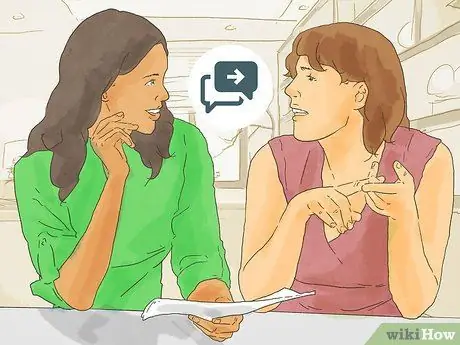
Step 2. Get clarification for things you don't understand
Sometimes people can't express their thoughts well or you can't understand the whole thing. It's natural to ask for clarification, especially if you want to make counter arguments.
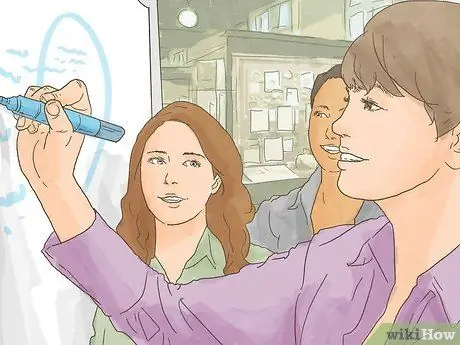
Step 3. Learn from the experiences of others
One of the advantages of participating in group discussions is that you can interact with people you may not have met before. This means that you have the opportunity to learn new things and broaden your horizons. However, if you don't want to hear other people's opinions, you can't learn new things.
- When someone comes up with an idea that surprises you, take a moment to calm yourself and think before replying to the argument. Try to imagine yourself in that person's shoes. This is done to understand his way of thinking.
- If you don't understand something, ask follow-up questions. The other person may appreciate your interest in the argument.

Step 4. Speak up if you have an opinion
Group discussions involve all members who attend the discussion, including yourself. If you have a relevant opinion or argument about the topic being discussed, share your thoughts.
- If you are shy, try to get the discussion leader's attention so you have a chance to speak.
- You can also ask questions to invite members to discuss.

Step 5. Prepare evidence to support your argument
When discussing an issue, especially in a school or work setting, you must have evidence or research to support your argument. You can use experience as evidence. However, you should be able to explain well the reasons that make your experience relevant to the topic at hand.
Method 2 of 3: Creating a Comfortable Discussion Environment
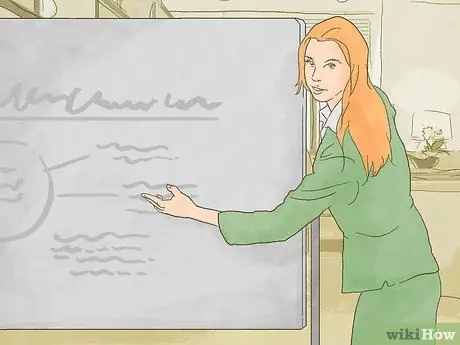
Step 1. Focus on the topic being discussed
Talking about other things that are not related to the topic is fun and can be a temptation in itself. However, you should try to stay focused on the issue at hand. In this way, you and your members can maximize the benefits derived from the discussion.
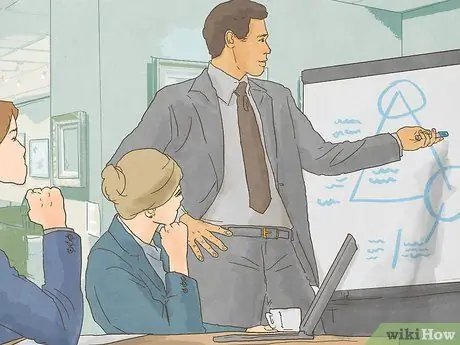
Step 2. Listen to what other people have to say
When you join a group discussion, you not only get the opportunity to share your thoughts, but also to hear other people's arguments. Listening to other people's opinions is just as important as presenting your arguments.
- To be a good listener, you should not only think about the arguments you want to convey, but also hear what other people have to say.
- Take notes of the other person's arguments so that you have a reference when trying to counter their arguments.
- If you have a good idea, save it until you have a good time to share it. Don't interrupt someone else's speech when he or she is sharing an idea. Taking notes can help remind you to share ideas when it's your turn to speak.

Step 3. Debate the other person's ideas instead of attacking them personally
When the discussion starts to heat up, you may be tempted to start attacking the other person. However, you should stay focused on the idea being discussed to keep the discussion calm and polite.
- For example, you might be tempted to say "You're such a fool if you think like that." However, this only made the situation worse and the discussion could not run smoothly.
- Try saying, "Sorry, can you explain why you think that way? I don't agree with your opinion, but I want to know your perspective." This sentence can help the discussion continue and the other person may be able to offer an opinion that can convince you.

Step 4. Pay attention to how you speak
When presenting an argument, try to greet everyone present. Do not use language that is harsh and contains sexism and racism because it can make the other person feel neglected and offend them.
- For example, use "Chairman" instead of "Mr.
- Say "May I get your attention, ladies and gentlemen?" instead of "Can I get your attention ladies and gentlemen?"
Method 3 of 3: Lead Group Discussion
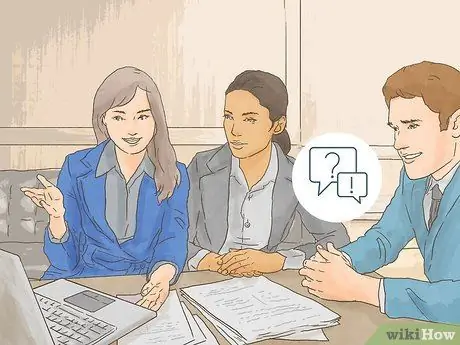
Step 1. Ask questions to start a discussion
Groups may have difficulty starting to discuss certain topics. You can start a discussion by asking open-ended questions to get people to talk about the topic. Open-ended questions are questions that encourage people to provide insight, not just "yes" or "no."
- You could ask a question that invites members to think deeply to initiate a discussion, such as "What do you think is meant by "freedom of expression"?"
- Questions that test members' insights can start a discussion, such as "What assumptions is the author trying to convey? Are his assumptions consistent with the facts?"
- You can also ask questions that address the relationship between one subject and another, such as "What do these two ideas have in common? What's the difference?" Questions that invite the members to research the elements of the topic can also be helpful, such as "What do you think the author is trying to convey in this scene?"

Step 2. Encourage each member to speak
As a leader, your job is to help all members share their opinion. If some members are shy, you should give them a chance to talk. For example, you could walk around the group and ask each member to share their opinion. Thus, everyone has the opportunity to speak.
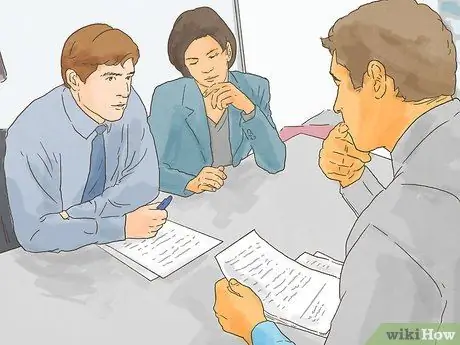
Step 3. Pay attention to members' emotions
To be an effective leader, you must pay attention to how each member reacts when you hear arguments from other members. If you ignore members' feelings, you can make some members feel alienated. You should also pay attention to their nonverbal reactions. You can tell how they feel by paying attention to their body language.
- Immediately deal with problems that arise when you see them.
- For example, if someone is frequently interrupted by other members when speaking, he or she may cross her arms over her chest and glare at the person interrupting her. Try to deal with problems that arise by asking what the person thinks. Also, it's a good idea to ask the members to let the other members finish before starting to speak.
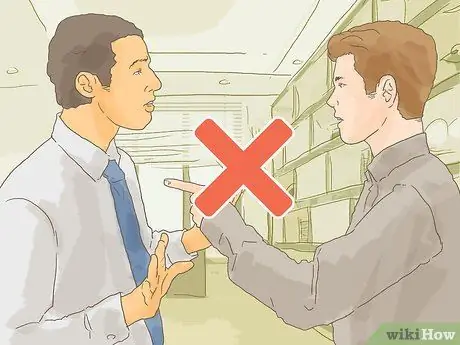
Step 4. Prevent personal attacks from happening in the group
While intense discussion is common, make sure everyone focuses their attention on the topic. They should discuss ideas, not attack others personally, regardless of whether the person being attacked is a member of the group or not.
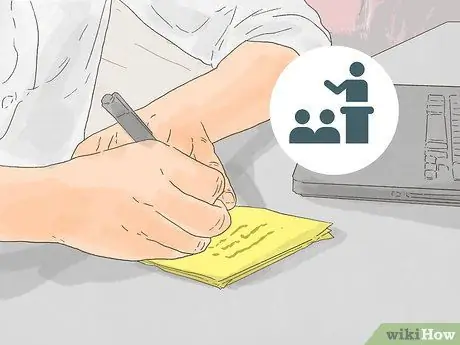
Step 5. Record the things discussed
It's a good idea to take notes where everyone can see them, such as on a whiteboard or a projector screen. Thus, these notes can help members to stay focused on the topic of discussion and be used as a reference. In addition, you can also record the things discussed in the group.
You can ask for volunteers from group members to take notes
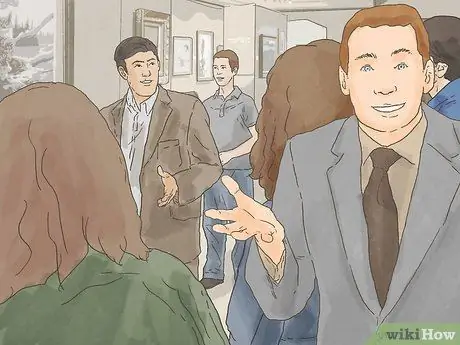
Step 6. Do not interrupt the ongoing discussion
If members are able to continue the discussion without your help, do not interrupt the flow of the discussion. If the members focus the conversation on the specified topic and the discussion is going well, do not interrupt the flow of the discussion by interrupting the conversation.
Tips
- Don't take sides when leading the discussion.
- Don't interrupt. Wait for the other members to finish speaking.
- If the discussion is deadlocked, you can keep the discussion going by asking questions or changing the way the topic is discussed.






